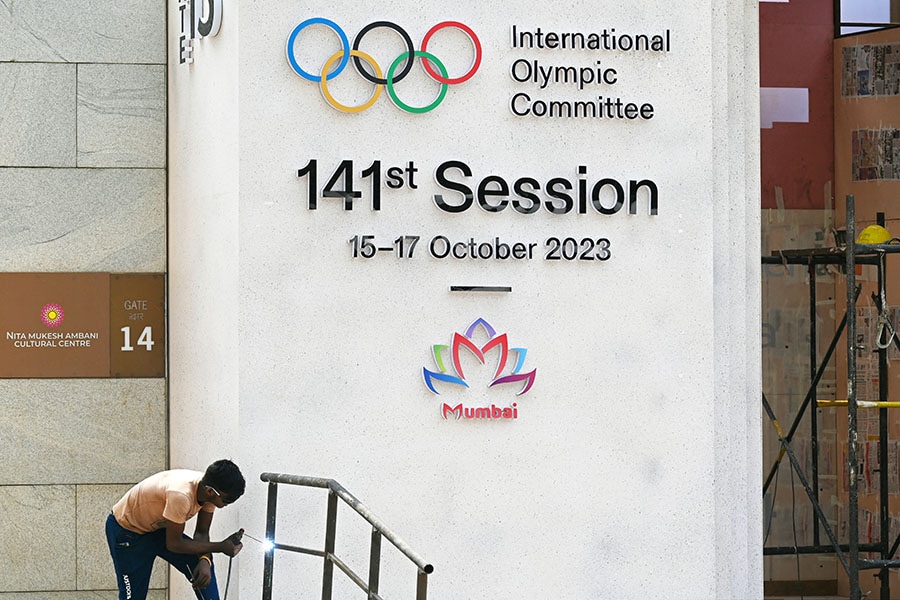
Explained: Why the 141st IOC session in Mumbai could be significant for India
It will take key decisions, including the inclusion of cricket in the 2028 Los Angeles Games
 The venue being prepped for the upcoming 141st International Olympic Committee (IOC) session in Mumbai beginning October 15. Image: Indranil Mukherjee / AFP
The venue being prepped for the upcoming 141st International Olympic Committee (IOC) session in Mumbai beginning October 15. Image: Indranil Mukherjee / AFP
Forty years after it hosted a session of the International Olympic Association (IOA), in Delhi in 1983, the second such event is set to begin in the country, this time in Mumbai. The 141st session of the IOC will take place in the financial capital from October 15-17, preceded by its executive board meeting on October 12 and 13. The opening ceremony is slated for October 14.
What’s an IOC session?
It’s the annual general meeting of the IOC and its supreme decision-making forum. Key decisions like picking host cities, election of members and office bearers, recognition or exclusion of sports federations and national Olympic committees, among other things, are taken during this event, typically held over a two-three-day period. An IOC session also deliberates and decides on adding new sports to the Games. It’s going to be a key talking point this year given that the committee is expected to announce whether cricket will be included in the Los Angeles Games scheduled for 2028.How did India get to host the session?
India won the rights to host the 141st session unopposed, during the IOC’s 139th session in Beijing, with an overwhelming 99 percent votes. Seventy-five members supported India’s bid presented by a delegation that comprised Abhinav Bindra, the country’s first individual Olympic gold medallist, Nita Ambani, the first Indian woman to be elected an IOC member (in 2016), then IOA president Narinder Batra and sports minister Anurag Thakur.Also read: The spirit of Olympics, through art and films
Why is the session significant for India?
The session will allow India to showcase to elite IOC delegates its readiness to host a high-octane event like the Olympics. As Thakur told the media recently, India is keen on hosting the 2036 Games and is preparing to bid for it.
X








